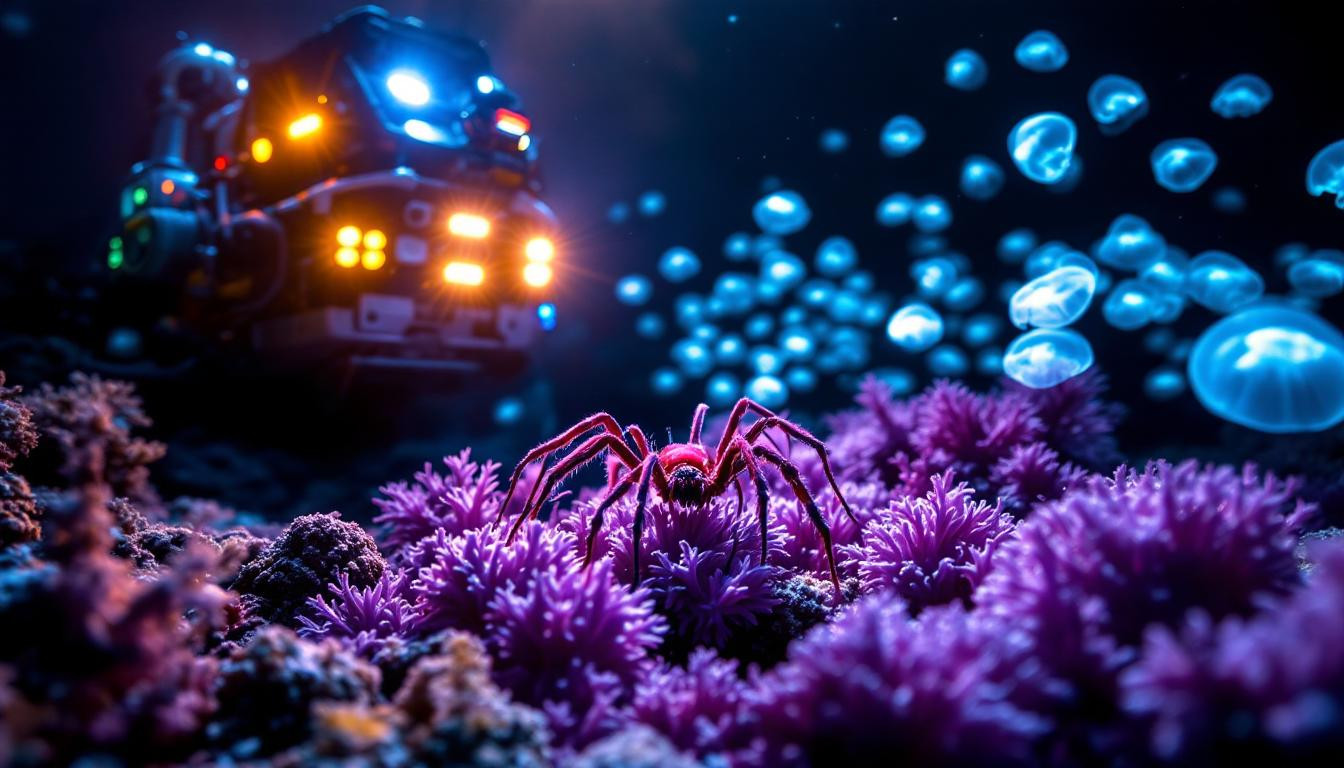As spring brings thawing ice across the Northern Hemisphere, a special breed of scientists continues their extraordinary work beneath the frozen surface of Antarctica. These under-ice explorers are revolutionizing our understanding of one of Earth’s last frontiers, venturing where few humans have gone before.
The hidden world beneath Antarctic ice
In early 2025, a massive iceberg broke free from the George VI Ice Shelf, revealing a seafloor that had been hidden for centuries. Scientific divers and ROVs arrived within days, documenting a thriving ecosystem that defied expectations.
“We didn’t expect to find such a beautiful, thriving ecosystem,” explains Dr. Patricia Esquete, lead biologist on the expedition. “Based on the size of the animals, the communities we observed have been there for decades, maybe even hundreds of years.”
Technological marvels enabling discovery
Modern exploration relies on sophisticated submersibles like ‘Ran,’ which recently mapped the underside of the Dotson Ice Shelf. These machines navigate like underwater astronauts through an alien landscape of ice.
“By navigating the submersible into the cavity, we were able to get high resolution maps of the ice underside,” says Anna Wåhlin, oceanographer. “It’s a bit like seeing the back of the moon for the first time.”
The unexpected diversity of deep-sea life
What surprises scientists most is the rich biodiversity flourishing in total darkness. Giant sea spiders, mysterious icefish, and resilient octopuses create complex ecosystems sustained entirely by ocean currents rather than sunlight.
- Unique species adapted to extreme cold
- Creatures thriving without sunlight
- Long-lived organisms potentially centuries old
Training for the extreme
Scientific diving beneath ice requires specialized training that few possess. Programs like the Polar Scientific Diving Program prepare researchers for these hostile environments, teaching crucial skills for working in near-freezing waters.
“The logistics and protocols for under-ice diving are unlike anything in conventional marine research,” notes Dr. Edd Stockdale, polar diving instructor. “Every dive must be meticulously planned with safety as the absolute priority.”
Climate sentinels at the frontier
These explorers aren’t just satisfying scientific curiosity – they’re tracking the health of our planet. The stability of ice shelves directly impacts global sea levels, making their research critically important.
“The ice loss from the Antarctic Ice Sheet is a major contributor to sea level rise worldwide,” emphasizes Sasha Montelli, glaciologist. “Our work is critical for providing longer-term context of these recent changes.”
Nature’s delicate balance
Like canaries in a coal mine, these deep-sea ecosystems may provide early warnings about climate change impacts. Their study offers insight into how life adapts to extreme conditions, information potentially valuable in understanding how marine life might respond to warming oceans, similar to research conducted at the Darwin’s living laboratory islands.
“Serendipitous moments are part of the excitement of research at sea – they offer the chance to be the first to witness the untouched beauty of our world,” says Dr. Jyotika Virmani, oceanographer.
The future of ice exploration
Scientists plan to return to the newly exposed Antarctic seafloor in 2028, hoping to document how these pristine environments evolve. Their work complements marine research in other unique ecosystems like the world’s second-largest barrier reef.
- Autonomous vehicles traveling deeper than ever before
- Multi-year studies tracking ecosystem changes
- International collaboration pooling resources and knowledge
As the ice slowly returns during the approaching Antarctic winter, these modern explorers continue their vital work, revealing secrets from our planet’s final frontier. Their discoveries remind us that Earth’s most extreme environments, much like the untouched beaches of Seychelles, still hold mysteries waiting to be uncovered by those brave enough to venture beneath the ice.
